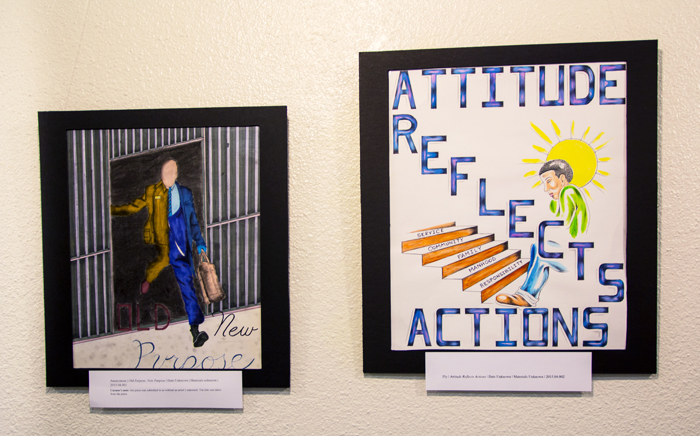
Joy McNally, a former special to President Gormley during his time as law school dean, was named the interim director of the brand-new Kline Center for Judical Education. McNally was also a law clerk for the PA Supreme Court and PA Superior Court.

Joy McNally, a former special to President Gormley during his time as law school dean, was named the interim director of the brand-new Kline Center for Judical Education. McNally was also a law clerk for the PA Supreme Court and PA Superior Court.
Kailey Love | Photo Editor
With its new interim director in place, the law school’s Thomas R. Kline Center for Judicial Education can begin moving forward with its unique plan to service the judicial system across the commonwealth.
Joy McNally, recently retired from her position as special advisor to president Gormley during his time as dean of the law school as well as an adjunct professor for undergraduate and law students, stepped into the role of interim director of the Kline Center on Sept. 1.
A colleague of President Gormley throughout their professional careers (even helping to edit his book The Presidents and the Constitution: A Living History during her time as his special advisor), he reached out to her and asked her to return to the university to assume the role of interim director and oversee the development of the Kline Center as it begins its development.
McNally brings experiences from all across the realm of law practice. From clerkships with the Supreme Court of Pennsylvania (as well as clerking for Maureen Lally-Green, the current dean of the law school, during her time on the Superior Court of Pennsylvania) to practicing law herself for ten years, she is excited to be “doing something new that nobody has done before, and doing it from the ground up.”
“It would be a way for me to make a meaningful contribution to the Pennsylvania Supreme Court and the Judiciary, which I have come to love…it is a way of giving back to an institution that has given me so much,” McNally said on her decision to return to the law school upon President Gormley’s request.
“It’s new, and it’s visionary.”
Announced in July of this year, the Kline Center is the first of its kind in the nation. Its namesake, Duquesne alum and Philadelphia lawyer Thomas Kline, pledged 7.5 million dollars (the largest individual gift in the history of Duquesne’s law school) to establish the center in response to the order issued by the Supreme Court of Pennsylvania in Dec. 2016 that stated that all Pennsylvania judges and justices must take twelve mandatory continuing judicial education (CJE) credits per year.
According to a fact sheet compiled by the university about the Kline Center, “in no other state does an entity partner with the courts and all other law schools in that state, in a collaborative fashion to provide education to that state’s judiciary, free of charge.”
The development of the center will help deliver CJE credits to 600 jurists across Pennsylvania, while partnering with the Judicial Education Center of the Supreme Court of Pennsylvania and the nine law schools across the commonwealth (including the University of Pittsburgh and the University of Pennsylvania).
“Coming up with coursework that is meaningful for all of these judges and jurists across the commonwealth is quite a challenge…what better way, perhaps, to deliver great content and, from a practical standpoint, widespread locations for those courses than the law schools?” McNally said.
“What’s unique, novel, and an idea that appears nowhere in the country when it comes to judicial education is the cooperation and collaboration that is anticipated between the nine law schools.”
The Kline Center will also establish the Council of Law Schools between the nine, and will be made up of the deans from each law school.
“This is a new vision for how judicial education is to be developed and delivered…no one has quite done it this way with the collaboration of law schools, and that’s exciting to me,” McNally said.




